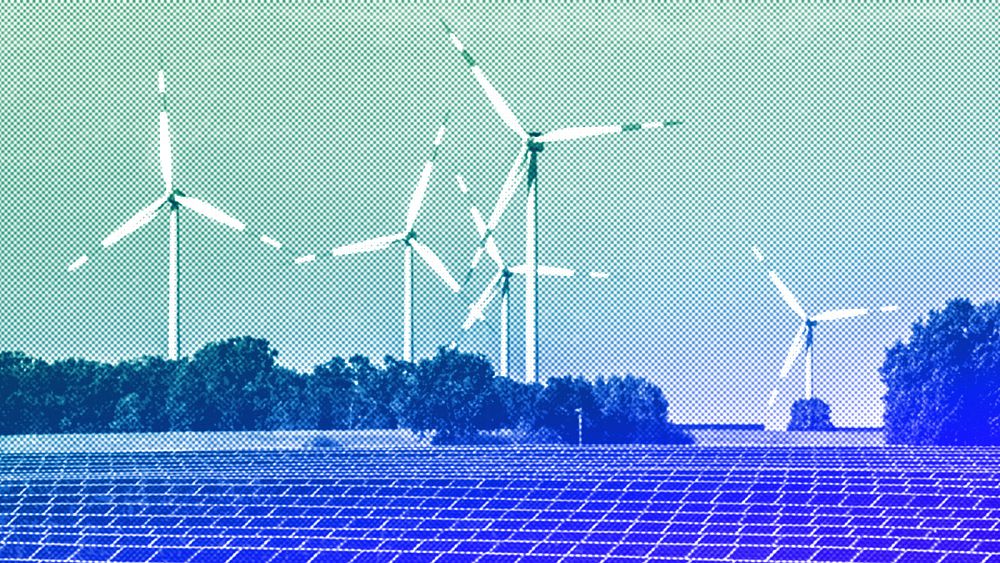
By Duygu Kutluay, Campaigner, Beyond Fossil Fuels
No-brainer actions like installing solar panels on warehouse rooftops or retrofitting offices with heat pumps are not just good financial decisions. They help businesses to take control of their own energy security, Duygu Kutluay writes.
But all of them have been put on shaky ground by the fossil fuel energy crisis, burdened with volatile and expensive energy costs just as they were recovering from the COVID-19 pandemic.
Reeling from these challenges, SMEs are increasingly looking towards renewables and energy efficiency as key, permanent solutions to build resilience and increase competitiveness.
Surging energy costs threaten businesses
Europe’s continued dependence on fossil fuels threatens the critical role SMEs play as job creators and innovators.
A new poll published by Beyond Fossil Fuels reveals that over half of European SMEs agree that their country’s dependence on fossil fuels is to blame for business-threatening energy bills.
While coping with shrunken revenues over the past year, businesses had to make tough choices between keeping their staff, increasing their prices and staying afloat.
This meant two-thirds of SMEs were forced to increase the price of their goods and services, contributing to the cost of living crisis and ultimately putting their survival at risk.
It’s now vital that businesses get support to access the renewable and energy efficiency measures that protect them from the energy price instability fossil fuels cause.
What is driving the energy transition?
The polling clearly shows that 75% of SMEs see a rapid shift to renewable power and ramping up energy savings efforts as the solution to both high energy costs and climate change.
They know renewables and greater efficiency are their best options to cut bills, build resilience, and improve competitiveness, and they’re keen to take big steps to transition to them.
Those who have already turned to cheaper, homegrown renewable energy initiatives sing its praises.
Holger Cecco-Stark, Head of Projects and Corporate Social Responsibility at German outdoor retailer Bergzeit, said, “If you want to survive as a modern company, you can’t afford not to invest in energy savings. Energy efficiency should be a matter of course.”
No-brainer actions like installing solar panels on warehouse rooftops or retrofitting offices with heat pumps are not just good financial decisions. They help businesses to take control of their own energy security.
Although over half of companies surveyed are eager for more local solar and wind investments, slow national deployment, low levels of support for renewable and efficient solutions, and administrative barriers are holding businesses back and, in some cases, jeopardising their survival.
Removing the red tape
Many companies are either already doing their part to transition to an efficient, renewables-based power system or are ready, willing, and able to do so if their efforts are supported.
Now governments, business associations, and financial institutions have an unmissable opportunity to support SMEs through the energy transition.
Raising awareness and providing technical information about opportunities and funding is a crucial first step. Businesses need transparent access to resources that can help them navigate the complexities of renewable energy adoption.
Fostering more collaboration and networking also promotes knowledge sharing, innovation, and collective action.
Above all: regulatory stability is paramount for long-term planning. Predictable and consistent policies underpin informed decision-making and safe investments in sustainable energy initiatives.
Financial assistance in the form of grants, subsidies, low-interest loans, and investment capital is also indispensable here to overcome financial constraints.
In the end, we depend on SMEs being prosperous
The fossil fuel energy crisis has highlighted the urgent need to transition towards renewable energy sources and improve energy efficiency.
We depend on SMEs for our jobs, our goods and services, and our collective prosperity.
More guidance and support through the energy transition will not only deliver much-needed decarbonisation but will also unlock the full potential of SMEs as drivers of the clean energy transition while creating long-term financial resilience for themselves and Europe as a whole.
Duygu Kutluay is a Campaigner at Beyond Fossil Fuels, a coalition of civil society organisations striving for a just transition to a fossil-free, fully renewables-based European power sector by 2035.
At Euronews, we believe all views matter. Contact us at view@euronews.com to send pitches or submissions and be part of the conversation.
